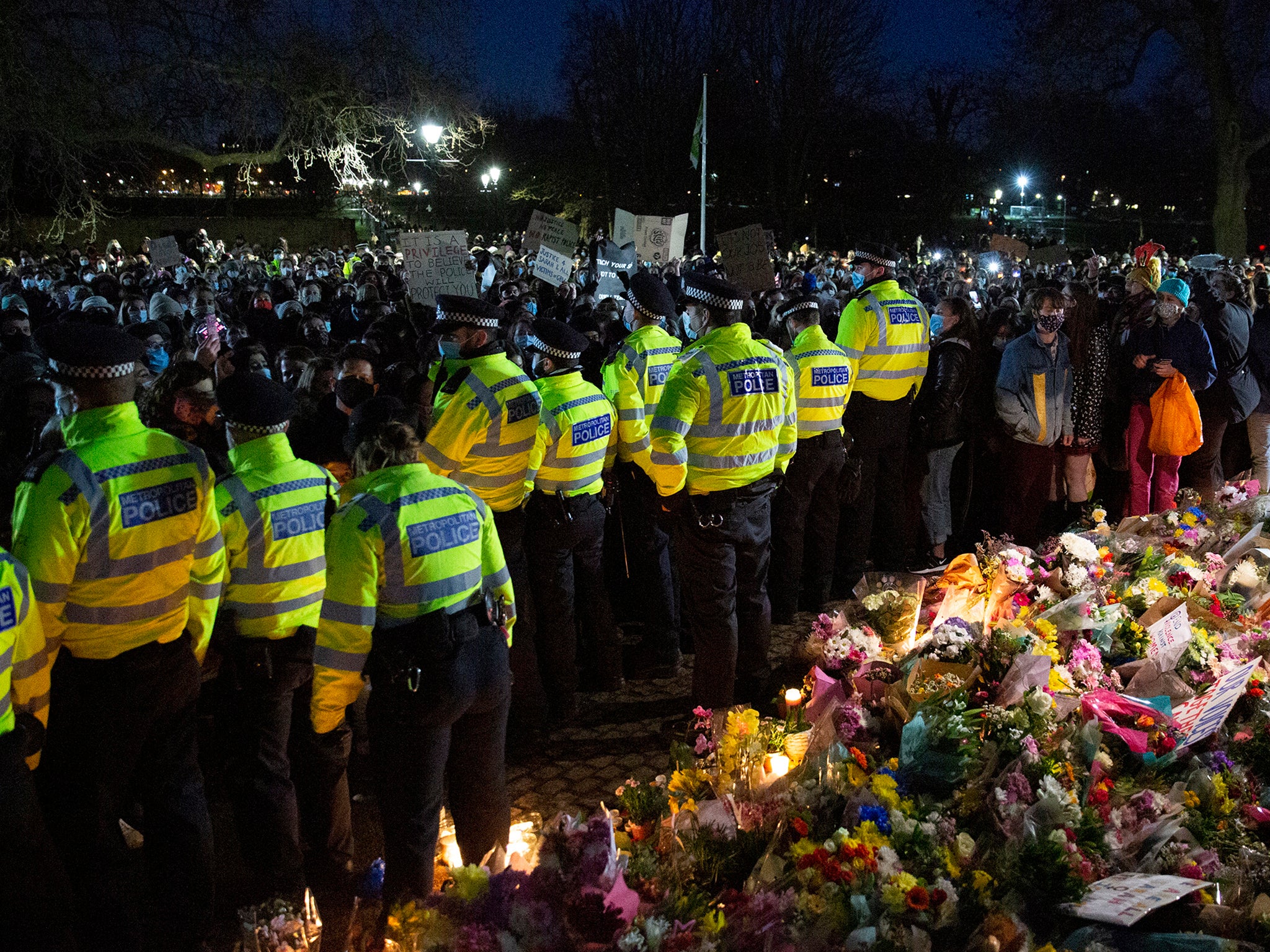Greater clarity is needed on what forms of protest are lawful
Editorial: As things stand, MPs and ministers have no place criticising the Metropolitan Police or any other force for trying to make sense of complicated and contradictory rules

The risk of a third lockdown cannot be discounted, and it is real enough to give pause for thought. New infections are on the rise in Europe, they remain uncomfortably high in parts of Britain, the vaccine rollout is slowing, at least temporarily, and new “variants of concern” keep popping up.
The case for caution is as strong now as it was when the government published its “roadmap” a few weeks ago. There is no case for easing lockdown prematurely, as some frustrated Conservative backbenchers are lobbying for. Such is their impatience that they are threatening to rebel when the emergency powers come to the Commons for renewal on Thursday. They will not succeed, and do not deserve to succeed – but the experience of maintaining public order in recent weeks means that these regulations do need to be amended.
It is the fault of politicians – MPs in every party – that the laws on public assembly and protest are such a tangle. The police are tasked with trying to uphold contradictory laws. They could not win in such circumstances, and particularly when the courts declined to clarify in advance of the circumstances what might constitute a lawful protest.
The Covid regulations, for all practical purposes, have banned protests; but human rights legislation points in the other direction, and the lawful discretion of police officers can easily result in inconsistent results, exacerbating feelings of unfairness and resentment.
When the Labour shadow cabinet member Lisa Nandy claims that a “socially distanced” lawful protest can still take place, she is stretching credulity, because such events tend not to stay socially distanced very long. In any case, any kind of assembly is effectively prohibited under the public health regulations, whether it is raucous Rangers fans or mourners at a vigil, and the courts have not yet overridden it under the Human Rights Act.
What parliament should do this week is find a way to clarify what kinds of protests, if any, are allowed. If it fails to do so again, and leaves the mess untouched, then MPs and ministers have no place criticising the Metropolitan Police or any other force for trying to make sense of complicated and contradictory rules. If the Commons cannot bring itself to judge the right trade-off between civil liberties and public health, then the House of Lords should exercise its traditional role as an improver of bad laws. If peers fail, then the Supreme Court should do so. The police cannot be expected to second guess the right answer.
Now that the “emergency” laws are a year old, there is time to reappraise their effectiveness, but the phased, careful easing of the lockdown, supported by the data as it develops, has to be kept at the planned pace. If not, then a substantial third wave, a third lockdown and many more deaths, as well as damage to the economy, would follow a rush to get to the pub for an Easter family reunion.
Read more:
With Labour and the other opposition parties pledging to back the rules, as they have on every previous occasion, there is no possibility the government will lose the crucial votes. In such circumstances, some Tory MPs might be more tempted to vote against the emergency powers, safe in the knowledge that they can do so with no serious risk of the chaos that would ensue if the laws were actually abolished overnight.
The rebellion, in other words, might look more impressive than it actually amounts to. Protest without consequence is a tempting proposition for those looking to burnish their libertarian credentials, as so many populist Conservatives seem to enjoy.
The problem for Boris Johnson is that he will be leading a government with a nominal Commons majority of more than 80, but having to rely once again on the goodwill of Sir Keir Starmer and the Labour Party to get his legislation on the statute book. Labour has been mature and responsible enough not to jeopardise public health by strong-arming the government into making concessions on some of the more confusing aspects of the present legal framework, not least regarding public protest. But the opposition might gently and quietly, in privy council terms, suggest that ministers at least level with the public and the police that marching and demonstrating are off-limits for the duration of the pandemic.
Join our commenting forum
Join thought-provoking conversations, follow other Independent readers and see their replies
Comments